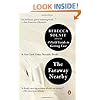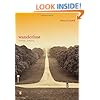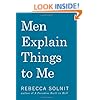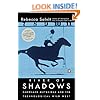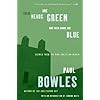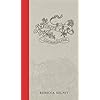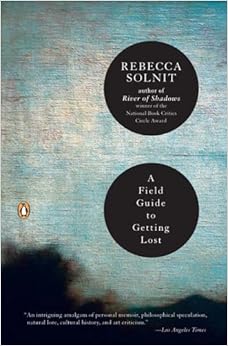
A Field Guide to Getting Lost
and over one million other books are available for Amazon Kindle. Learn more


Flip to back
Flip to front

A Field Guide to Getting Lost Paperback – June 27, 2006

$9.04
FREE Shipping on orders over $35.
Only 9 left in stock (more on the way).
Ships from and sold by Amazon.com.
Gift-wrap available.
NO_CONTENT_IN_FEATURE
Start reading A Field Guide to Getting Lost on your Kindle in under a minute.
Don't have a Kindle? Get your Kindle here, or download a FREE Kindle Reading App.
Don't have a Kindle? Get your Kindle here, or download a FREE Kindle Reading App.
Choose Your Own Autobiography
Step right into Neil Patrick Harris's shoes in an exciting, interactive autobiography that places the reader squarely in the driver's seat. Learn more
Step right into Neil Patrick Harris's shoes in an exciting, interactive autobiography that places the reader squarely in the driver's seat. Learn more
Product Details
Would you like to update product info or give feedback on images?.
|
Editorial Reviews
From Publishers Weekly
The virtues of being open to new and transformative experiences are rhapsodized but not really illuminated in this discursive and somewhat gauzy set of linked essays. Cultural historian Solnit, an NBCC award winner for River of Shadows: Eadweard Muybridge and the Technological Wild West, allows the subject of getting lost to lead her where it will, from early American captivity narratives to the avant-garde artist Yves Klein. She interlaces personal and familial histories of disorientation and reinvention, writing of her Russian Jewish forebears' arrival in the New World, her experiences driving around the American west and listening to country music, and her youthful immersion in the punk rock demimonde. Unfortunately, the conceit of embracing the unknown is not enough to impart thematic unity to these essays; one piece ties together the author's love affair with a reclusive man, desert fauna, Hitchcock's Vertigo and the blind seer Tiresias in ways that will indeed leave readers feeling lost. Solnit's writing is as abstract and intangible as her subject, veering between oceanic lyricism ("Blue is the color of longing for the distance you never arrive in") and pensées about the limitations of human understanding ("Between words is silence, around ink whiteness, behind every map's information is what's left out, the unmapped and unmappable") that seem profound but are actually banal once you think about them.
Copyright © Reed Business Information, a division of Reed Elsevier Inc. All rights reserved. --This text refers to an out of print or unavailable edition of this title.
Copyright © Reed Business Information, a division of Reed Elsevier Inc. All rights reserved. --This text refers to an out of print or unavailable edition of this title.
From The New Yorker
This meditation on the pleasures and terrors of getting lost is-as befits its subject-less a coherent argument than a series of peregrinations, leading the reader to unexpected vistas. The word "lost," Solnit informs us, derives from the Old Norse for disbanding an army, and she extrapolates from this the idea of striking "a truce with the wide world." It's the wideness of the world that entices: a map of this deceptively slender volume would include hermit crabs, who live in scavenged shells; marauding conquistadors; an immigrant grandmother committed to an asylum; white frontier children kidnapped by Indians; and Hitchcock's "Vertigo." Solnit imagines a long-distance runner accumulating moments when neither foot is on the ground, "tiny fragments of levitation," and argues, by analogy, that in relinquishing certainty we approach, if only fleetingly, the divine.
Copyright © 2005 The New Yorker --This text refers to an out of print or unavailable edition of this title.
Copyright © 2005 The New Yorker --This text refers to an out of print or unavailable edition of this title.
More About the Author
Writer, historian, and activist Rebecca Solnit is the author of sixteen books about environment, landscape, community, art, politics, hope, and memory, including two atlases, of San Francisco in 2010 and New Orleans in 2013; this year's Men Explain Things to Me; last year's The Faraway Nearby; A Paradise Built in Hell: The Extraordinary Communities that Arise in Disaster; A Field Guide to Getting Lost; Wanderlust: A History of Walking; and River of Shadows, Eadweard Muybridge and the Technological Wild West (for which she received a Guggenheim, the National Book Critics Circle Award in criticism, and the Lannan Literary Award). A product of the California public education system from kindergarten to graduate school, she is a contributing editor to Harper's and frequent contributor to the political site Tomdispatch.com.
She encourages you to shop at Indiebound, your local independent bookstore, Powells.com, Barnes & Noble online and kind of has some large problems with how Amazon operates these days. Though she's glad if you're buying her books however.....
She encourages you to shop at Indiebound, your local independent bookstore, Powells.com, Barnes & Noble online and kind of has some large problems with how Amazon operates these days. Though she's glad if you're buying her books however.....
Customer Reviews
Most Helpful Customer Reviews
74 of 78 people found the following review helpful
By
Anna Mills
on June 12, 2007
Format: Paperback
1 Comment
Sending feedback...
The first question is, what is a field guide to getting lost? Field guides help us with finding, not losing or getting lost. We use them to classify the unfamiliar and figure out what surrounds us. They reassure us that the bewildering array of natural phenomena has an underlying order. Solnit's title suggests we might also want our schemas to break down. Can we catalogue the various ways of getting lost as we might catalogue songbirds? The paradox feels whimsical, mocking, alluring. Like the title, the tone of the book will hover between the urge to know and the urge not to know, between rationality and mystery.
In the middle of the first chapter, Solnit gives us a manifesto: "Never to get lost is not to live, not to know how to get lost brings you to destruction." "Lost," for her, means we lack a narrative for what we are experiencing. Getting lost is a kind of Zen rebirth because "to be lost is to be fully present, and to be fully present is to be capable of being in uncertainty." Getting lost also has connotations of spiritual longing. Solnit titles every other chapter "The Blue of Distance." Blue "represents the spirit, the sky, and water, the immaterial and the remote, so that however tactile ansd close-up it is, it is always about distance and disembodiment." Voila the tone of the book--grand, abstract, sensual, yearning and inexorably aloof.
With a topic like the beauty of longing and loss, it is surprising how rarely Solnit lapses into cliché. Her prose is as smooth and bare as polished stone. It creates the feeling of waking from a dream and encountering the world, dazed and receptive. If Thoreau is the most cerebral of the philosopher-poets and Whitman the most sensual, Rebecca Solnit belongs at the midpoint.Read more ›
In the middle of the first chapter, Solnit gives us a manifesto: "Never to get lost is not to live, not to know how to get lost brings you to destruction." "Lost," for her, means we lack a narrative for what we are experiencing. Getting lost is a kind of Zen rebirth because "to be lost is to be fully present, and to be fully present is to be capable of being in uncertainty." Getting lost also has connotations of spiritual longing. Solnit titles every other chapter "The Blue of Distance." Blue "represents the spirit, the sky, and water, the immaterial and the remote, so that however tactile ansd close-up it is, it is always about distance and disembodiment." Voila the tone of the book--grand, abstract, sensual, yearning and inexorably aloof.
With a topic like the beauty of longing and loss, it is surprising how rarely Solnit lapses into cliché. Her prose is as smooth and bare as polished stone. It creates the feeling of waking from a dream and encountering the world, dazed and receptive. If Thoreau is the most cerebral of the philosopher-poets and Whitman the most sensual, Rebecca Solnit belongs at the midpoint.Read more ›
Thank you for your feedback.
If this review is inappropriate, please let us know.
Sorry, we failed to record your vote. Please try again
82 of 89 people found the following review helpful
By
Grant Barber
on July 8, 2005
Format: Hardcover
Comment
Sending feedback...
Solnit's book is as the title suggests--a discursive reflectoin on the many nuances of the idea of 'getting lost.' You find out that 'lost' is from the Norse meaning 'the dispersal of armies,' and that early Renaissance painters use blue to designate distance, that children are better (i.e., less likely to die) at getting lost because they don't rationalize the way adults do--all in just a few pages where the insight garnered is both spun out by the author, but left to the reader to stop and pursue in his/her own reflections. Of the twenty or so books of all genres which I've read in the last few weeks--and of those I will read in the next several I suspect--this book incarnates why I read: erudite, entertaining, entrancing. Solnit's book reaches out toward Wordsworth, Dillard, Thoreau--and the Clash, Plato, Robert Hass. The voice and perspective, though, are her own. The essays here can not be read in great, long gulps; switching metaphors, there is hearty sustenance here--you take in only so much, and you are sated with good things which you must digest before moving on. Side note: whoever edited the book did a disservice--occasional glaring errors, such as 'form' being spelled out 'from' and 'good' repeated a second time in a context where the repetition makes no sense (and when you know the author would have easily used another expression to capture the nuance intended over against using something as clunky as redundancy of such a limited word).
Thank you for your feedback.
If this review is inappropriate, please let us know.
Sorry, we failed to record your vote. Please try again
22 of 22 people found the following review helpful
By
Constant Reader
on May 10, 2008
Format: Hardcover
Comment
Sending feedback...
With a prodigious breadth and fearless depth, she takes the segue to a high art. Anything can be the occasion for connection. Any sentence can break your mind or heart wide open. Her most personal, and my personal favorite. Reading this book makes me feel alive.
Thank you for your feedback.
If this review is inappropriate, please let us know.
Sorry, we failed to record your vote. Please try again
12 of 13 people found the following review helpful
By
Kenneth James Wylie
on September 13, 2008
Format: Hardcover
Comment
Sending feedback...
Rebecca Solnit has created what is in my mind what we all seek. Peace. In the notion of accepting that we are all "Lost", and that is where we are meant to be she has captured what the human condition is. Her prose is exceptional and thick. Her attachment to the natural world is a beacon of light in a society that is truly hopelessly lost. Lost from what is real. Brilliant work
Ken Wylie
Calgary Canada
Ken Wylie
Calgary Canada
Thank you for your feedback.
If this review is inappropriate, please let us know.
Sorry, we failed to record your vote. Please try again
21 of 25 people found the following review helpful
By
Midwest Book Review
on October 7, 2005
Format: Hardcover
Comment
Sending feedback...
Rebecca Solnit's A Field Guide To Getting Lost discusses experience and getting lost in the everyday, examining how people move from cities to wilderness, how they search for sense of self in an uncertain life, and how her own explorations in the world have changed her life. At once an autobiography and introspective examination, A Field Guide To Getting Lost surveys connections, ancestry, history, and modern culture in a personal odyssey of exploration.
Thank you for your feedback.
If this review is inappropriate, please let us know.
Sorry, we failed to record your vote. Please try again
6 of 6 people found the following review helpful
By
Amazon Customer
on September 10, 2010
Format: Hardcover
Comment
Sending feedback...
"Leave the door open for the unknown, the door into the dark. That's where the most important things come from, where you yourself came from, and where you will go."
Been meaning to read this since I heard her on NPR in SF one day several years ago. If one cares for good essays -- really good essays -- this book provides.
Been meaning to read this since I heard her on NPR in SF one day several years ago. If one cares for good essays -- really good essays -- this book provides.
Thank you for your feedback.
If this review is inappropriate, please let us know.
Sorry, we failed to record your vote. Please try again
16 of 20 people found the following review helpful
By
Deborah Perry
on August 11, 2005
Format: Hardcover
Verified Purchase
Comment
Sending feedback...
A mesmerizing book that is three separate tales told at the same time. At times humorous and sometimes it made me want to cry, this story was hard to put down. I would highly recommend it.
Thank you for your feedback.
If this review is inappropriate, please let us know.
Sorry, we failed to record your vote. Please try again
4 of 4 people found the following review helpful
By
Stephen Persing
on January 4, 2011
Format: Paperback
Verified Purchase
Comment
Sending feedback...
I found Rebecca Solnit through her essay in the catalogue of the 2008 Whitney Biennial, where her writing outshone everything else - including the art in the exhibition. In A Field Guide to Getting Lost, Solnit turns her brilliant intelligence to the many ways of being lost, both good and bad. Her essays cover a lot of ground without getting lost in any negative sense. Highly recommended.
Thank you for your feedback.
If this review is inappropriate, please let us know.
Sorry, we failed to record your vote. Please try again

